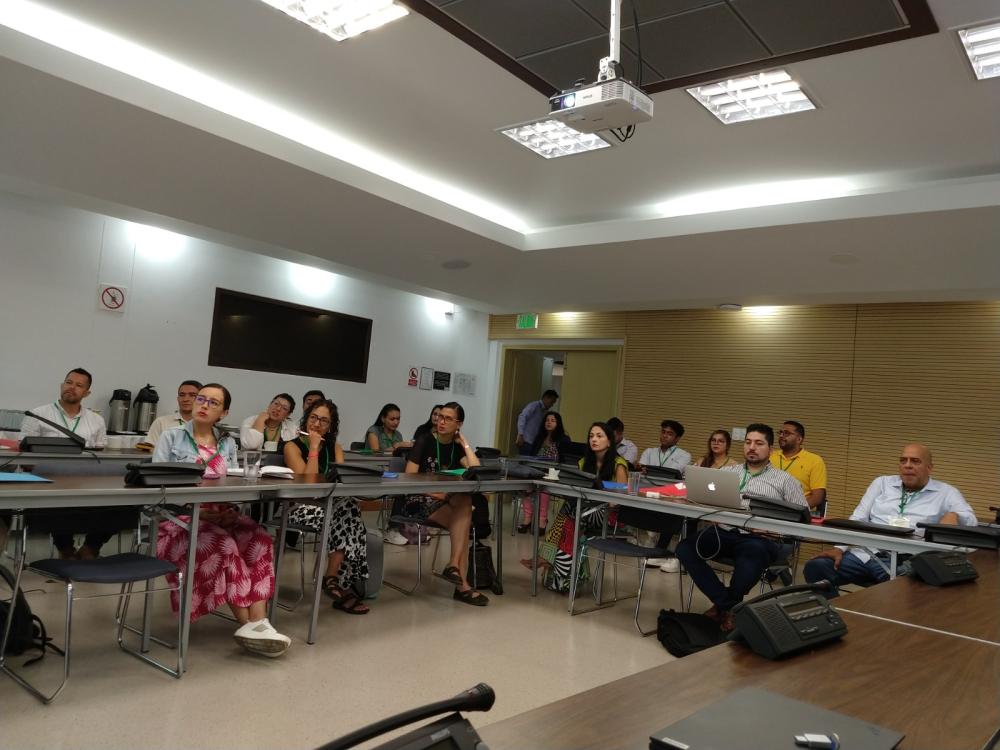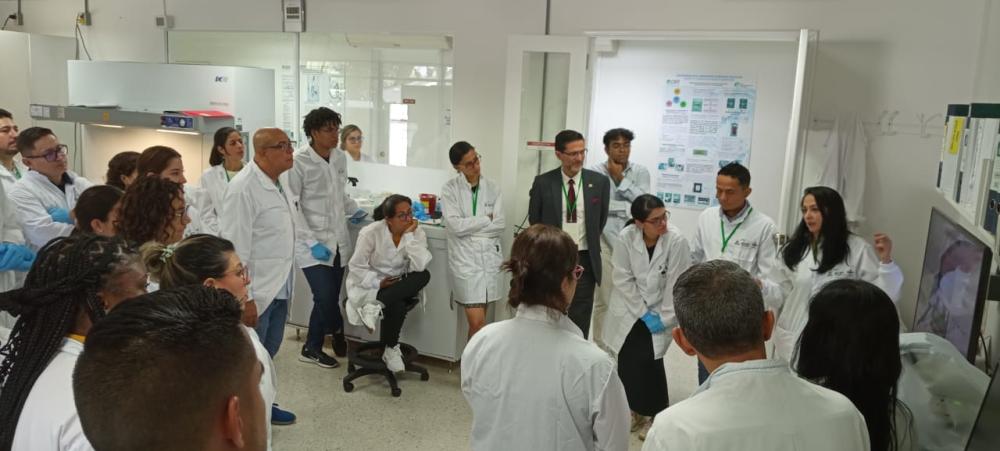Geared towards teachers, the course focused on sharing knowledge on and providing training in CRISPR-Cas gene editing techniques. This will allow for expanding the number of institutions that could eventually contribute biotechnology solutions to address various agricultural issues.

Palmira, Colombia, 3 August 2023 (IICA) – As part of its technical activities in the field of biotechnology, the Inter-American Institute for Cooperation on Agriculture (IICA) delivered, together with the Bioversity-CIAT Alliance, the Fifth Training Course on Gene Editing for Teachers in Palmira, Colombia, in July.
Joe Tohme, Acting Director General of CIAT; specialist Benjamin Rietmann of USDA-FAS; and Pedro Rocha, IICA International Specialist in Biotechnology and Biosafety, opened the course.
Geared towards teachers, the course focused on sharing knowledge on and providing training in CRISPR-Cas gene editing techniques. This, in turn, will allow for expanding the number of institutions that could eventually contribute biotechnology solutions to address various agricultural issues.
Participating in the course were 22 professors and researchers from Chile (INIA), Costa Rica (Universidad Nacional), Ecuador (ESPOL), Guyana (NAREI), Peru (La Molina), the Dominican Republic (IDIAF), Uruguay (Universidad de la República) and Colombia (Universidad Nacional in Bogotá and Palmira, Universidad de Antioquia, Universidad de Caldas, Universidad del Valle, Universidad de los Andes,
Universidad Antonio Nariño, Universidad Javeriana, Universidad de los Llanos, EAFIT, CES and SENA). Technical observers from USDA-FAS and the United States Embassy in Colombia also participated.
Previous versions of the course have given greater international relevance to precision biotechnology and generated a direct positive impact on countries’ national regulations on this topic. This demonstrates the interest and priority given by IICA, together with strategic research partners such as the Bioversity-CIAT Alliance, to furthering training in the latest biotechnology issues.

More information:
comunicacion.institucional@iica.int











